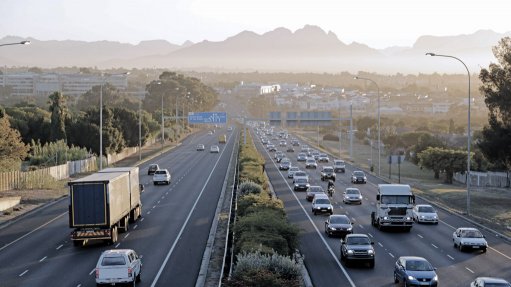
The Ctrack Freight & Transport Index declined by 1.7% from June to July.
This follows the biggest-ever monthly improvement from May to June.
Telematics solution provider Ctrack South Africa says that a small decline is generally not a concern for the transport industry; however, some subsectors within the index have seen massive drops in activity.
MD Hein Jordt points out that the data from the index clearly shows that the industry is far from being “out of the woods”.
That being said, Ctrack says business activity is still better compared with earlier this year.
For example, road and rail freight volumes are still increasing on a monthly basis, yet pipeline volumes declined by 33.6% in July, primarily owing to reduced traffic in South Africa’s major cities.
Another concerning trend is a decline in international trade, with both air and sea freight volumes falling again after a brief recovery.
Ctrack reports that storage and handling volume declines were somewhat expected. “Two consecutive months of strong increases was likely owing to weak product sales across the board.”
Jordt points out that, while the land transport sector is picking up, albeit at a slower rate than desired, the other transport modes had slipped in July.
Ongoing global supply chain disruptions and lockdown rules continue to be a barrier to international trade.
Meanwhile, current warehousing and storage volumes are similar to where they were two months ago, while rail and pipeline volumes show deeper declines.
Ctrack states that the change in work habits of ordinary people will keep the pipeline industry in a prolonged period of decline.
The rail freight industry may also report declines in general cargo volumes as it struggles to compete with road freight for convenience.
The bulk export of commodities such as iron-ore and coal are keeping the sector afloat.
“When ocean traffic splutters, rail freight catches a cold. And on top of this, road operators begin to sell their services below real costs just to survive.
“Air freight volumes are still largely in a lockdown state, with international passenger traffic to remain closed for a month or three longer,” Ctrack says.
Even if opened now, passenger volumes will probably be slow to recover. Without passengers on some planes, air freight is not economically viable.
Some unscheduled air freight has returned, however. One hopes the 41.7% decline compared with a year ago will continue to reduce.
Some airlines can only fly into South Africa from March next year, so this transport subsector is still a long way from being fixed.
"The broad picture tells the story of a world locked down and slowly opening back up from the weakest possible base.
"It will take years to get back to 'normal'," says Jordt.
“While we believe the massive transport declines are behind us, supply chain constraints could linger longer than we initially thought.”